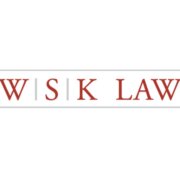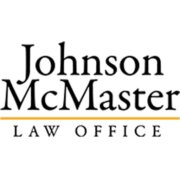Best Commercial Real Estate Lawyers in Cambridge
Share your needs with us, get contacted by law firms.
Free. Takes 2 min.
Free Guide to Hiring a Real Estate Lawyer
List of the best lawyers in Cambridge, Canada
About Commercial Real Estate Law in Cambridge, Canada
Commercial real estate law in Cambridge, Canada, governs the buying, selling, leasing, and development of properties used for business purposes. This field covers various transaction types, including office buildings, retail spaces, warehouses, industrial sites, and more. Cambridge, being part of the Waterloo Region, features a dynamic commercial property market influenced by local economic growth, zoning regulations, and ongoing infrastructure developments. Navigating commercial real estate in Cambridge requires a solid understanding of local practices, provincial statutes, and municipal bylaws to ensure transactions are compliant and legally sound.
Why You May Need a Lawyer
Commercial real estate transactions can be complex and involve significant financial risks. Here are common situations where you may require legal assistance:
- Purchasing or selling commercial property - Lawyers can review agreements for compliance and ensure the rights of buyers or sellers are protected.
- Leasing commercial space - Lease negotiations require careful drafting to avoid unfavorable terms or unintentional obligations.
- Financing transactions - Lawyers assist with mortgage agreements, financing arrangements, and related security documents.
- Land development and zoning - Obtaining municipal approvals, meeting zoning requirements, and handling land severance or subdivision often require legal expertise.
- Resolving disputes - Conflicts between landlords and tenants, property boundaries, or construction issues may necessitate legal intervention.
- Risk management - Identifying potential liabilities and ensuring compliance with environmental, safety, and accessibility standards.
Local Laws Overview
In Cambridge, commercial real estate transactions are governed by a combination of federal and provincial laws, as well as municipal bylaws. Key legal considerations include:
- Land Titles System - Ontario uses the Land Titles system, meaning all interests in land are registered and must be up-to-date.
- Planning Act - Governs land development, severances, and use, overseen by the City of Cambridge’s Planning Division.
- Civil Remedies Act and Construction Act - Address liens, remedies for non-payment, and construction holdbacks for contractors and suppliers.
- Building Code and Zoning By-laws - Ensure compliance with municipal development standards and intended land use.
- Environmental Regulations - Environmental assessments may be required to identify contamination or other site-specific issues.
- Municipal Property Taxes - Commercial properties are subject to municipal tax rates, with specific rules for assessments and appeals.
Frequently Asked Questions
What is the difference between residential and commercial real estate in Cambridge?
Commercial real estate refers to property used for business activities, such as offices, retail stores, warehouses, and industrial facilities. Residential property is used for living purposes. Laws, taxes, and transaction complexities differ significantly between the two, with commercial deals often being more complex.
Do I need a lawyer to buy or lease commercial property in Cambridge?
While not legally required, retaining a lawyer is highly recommended. Commercial transactions involve detailed contracts, regulatory compliance, and due diligence steps that carry significant risk without legal guidance.
What are common issues in commercial leases?
Typical concerns include lease term durations, rent escalation clauses, maintenance obligations, renewal options, and exclusive use provisions. Disagreements over these points can lead to disputes without a well-drafted contract.
How are environmental concerns handled in commercial real estate?
Environmental site assessments are often required before purchasing or redeveloping property to check for contamination. Sellers may need to disclose known environmental issues. Buyers should ensure that due diligence is completed before closing a deal.
Who pays the property taxes on commercial leases?
In most commercial leases, the tenant is responsible for property taxes, property insurance, and maintenance as part of a triple net lease, though terms may vary.
Can I change the use of my commercial property?
Any change of use must comply with local zoning bylaws. Applications to the City of Cambridge’s Planning Division may be required for a zoning change, minor variance, or additional approvals.
What happens if there is a dispute with my landlord or tenant?
Disputes may be resolved through negotiation, mediation, or legal proceedings. The first step is reviewing the lease agreement and seeking legal advice to determine the appropriate action.
What is title insurance, and do I need it?
Title insurance protects property owners and lenders from financial loss related to property title defects, including fraud or undisclosed claims. It is often recommended for commercial property transactions.
How long does a commercial real estate closing take?
A typical commercial closing may take 30 to 90 days, depending on due diligence, financing arrangements, and any required municipal approvals or clearances.
Must I register all transactions with the Land Registry Office?
Significant transactions, including property transfers, mortgages, and leases longer than three years, must be registered with the Ontario Land Registry Office to be legally recognized.
Additional Resources
If you are seeking information or assistance regarding commercial real estate in Cambridge, the following resources may be helpful:
- City of Cambridge Planning Services - Provides information on planning applications, zoning, and permits.
- Ontario Ministry of Municipal Affairs and Housing - Offers guidance on land use planning and development.
- Waterloo Region Land Registry Office - For registering property interests and retrieving title documents.
- Local Chamber of Commerce - Connects business owners and provides local market insights.
- Ontario Real Estate Association (OREA) - Offers resources on real estate transactions and professional standards.
- Law Society of Ontario - Find qualified real estate lawyers in your area and access legal information.
Next Steps
If you need legal assistance with a commercial real estate matter in Cambridge, Canada, consider the following steps:
- Clarify your needs - Identify whether you are buying, selling, leasing, developing, or facing a dispute.
- Gather documents - Collect all relevant agreements, plans, financing documents, and correspondence.
- Consult a lawyer - Reach out to a local lawyer with experience in commercial real estate for an initial consultation.
- Conduct due diligence - With your lawyer, undertake property searches, title reviews, environmental assessments, and obtain necessary municipal permits.
- Proceed with transactions - Your lawyer will draft and review contracts, negotiate terms, and ensure all legal requirements are satisfied before closing.
Seeking professional advice early can help you navigate the complexities of commercial real estate in Cambridge, minimize risk, and protect your investments.
Lawzana helps you find the best lawyers and law firms in Cambridge through a curated and pre-screened list of qualified legal professionals. Our platform offers rankings and detailed profiles of attorneys and law firms, allowing you to compare based on practice areas, including Commercial Real Estate, experience, and client feedback.
Each profile includes a description of the firm's areas of practice, client reviews, team members and partners, year of establishment, spoken languages, office locations, contact information, social media presence, and any published articles or resources. Most firms on our platform speak English and are experienced in both local and international legal matters.
Get a quote from top-rated law firms in Cambridge, Canada — quickly, securely, and without unnecessary hassle.
Disclaimer:
The information provided on this page is for general informational purposes only and does not constitute legal advice. While we strive to ensure the accuracy and relevance of the content, legal information may change over time, and interpretations of the law can vary. You should always consult with a qualified legal professional for advice specific to your situation.
We disclaim all liability for actions taken or not taken based on the content of this page. If you believe any information is incorrect or outdated, please contact us, and we will review and update it where appropriate.











